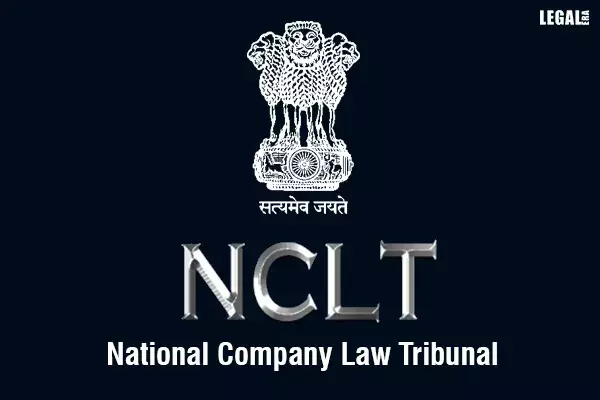NCLT Kolkata Rules Share Application Money Is Not A Financial Debt Under Section 5(8) IBC
The National Company Law Tribunal (NCLT), Kolkata Bench, with Shri Rohit Kapoor as Judicial Member and Shri Balraj Joshi;

NCLT Kolkata Rules Share Application Money Is Not A Financial Debt Under Section 5(8) IBC
The National Company Law Tribunal (NCLT), Kolkata Bench, with Shri Rohit Kapoor as Judicial Member and Shri Balraj Joshi as Technical Member, has ruled that the funds provided as Share Application Money do not meet the criteria for classification as a financial debt under Section 5(8) of the Insolvency and Bankruptcy Code, 2016.
In September 2019, the financial creditor Mittson Fille Enterprise transferred Rs. 5,00,00,000 to Sammaan Ventures Limited, the corporate debtor, for the acquisition of shares intended to be issued by the Corporate Debtor.
The corporate debtor neglected to finalize the share allotment process, resulting in the amount provided by the financial creditor being categorized as other loan advances in its financial statements for the fiscal years 2019–2020, 2020–2021, and 2021–2022. In January 2022, the financial creditor sent a notice to the corporate debtor demanding repayment of the outstanding dues.
In April 2023, the Financial Creditor submitted a petition under Section 7 of the Code, in conjunction with Rule 4 of the Insolvency and Bankruptcy (Application to Adjudicating Authority) Rules, 2016 (NCLT Rules), to request the commencement of the Corporate Insolvency Resolution Process (CIRP) against the Corporate Debtor.
The Financial Creditor referenced the ruling of the NCLAT in the case of Mr. Kushan Mitra v. Mr. Amit Goel to assert that share application money, in instances of non-allotment of shares, falls within the scope of financial debt as defined by Section 5(8) of the Code.
The Corporate Debtor cited the decision of the NCLAT in Pramod Sharma v. Karanaya HeartCare Private Limited to argue that the funds provided as share application money do not qualify as Financial Debt under Section 5(8) of the Code. It contended that the judgment relied upon by the Financial Creditor, namely Kushan Mitra, had been temporarily halted by the Supreme Court of India in Shobori Ganguli v. Amit Goel through an order dated February 25, 2022.
The Financial Creditor argued that the principle established in the judgment of Kushan Mitra remained binding on the NCLT, as a stay of a judgment merely suspends its implementation and not the legal principle it established. Additionally, it asserted that the ruling in Pramod Sharma was not relevant as it did not establish any legal principle; rather, it was a non-speaking order dismissing an appeal.
The NCLT observed that the judgment in Kushan Mitra was issued by an NCLAT bench consisting of two members, whereas the judgment in Pramod Sharma was rendered by an NCLAT bench comprising three members. Additionally, it acknowledged that the judgment in Kushan Mitra had been temporarily suspended by an order from the Supreme Court of India.
The NCLT determined that the default amount in this case did not qualify as a financial debt in accordance with the ruling in the case of Pramod Sharma. Therefore, it deemed the application filed by the financial creditor not maintainable. However, it emphasized that the dismissal of this petition should not be interpreted as an endorsement or rejection of the financial creditor's claim and clarified that the financial creditor is free to pursue any other legal remedy available under alternative laws.

